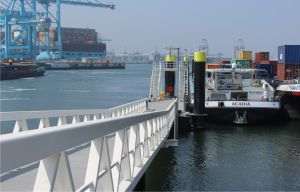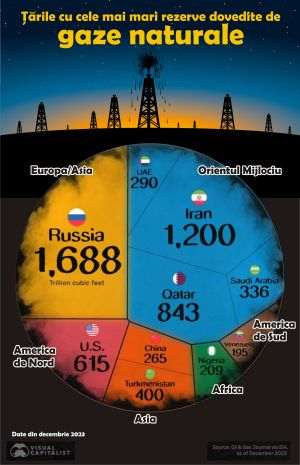The PSD-PNL coalition has given two governments since December 2021, Ciucă and Ciolacu, whose results are similar, with identical governance mistakes, although the leadership was different. Because both the PSD in the August 24 Congress and the PNL in the National Council that took place at the end of last week, designated Marcel Ciolacu and Nicolae Ciucă respectively as candidates of each political formation for the presidential elections, and because in the following presidential campaign the two candidates will remember in the competition about their performances in governance, BURSA Newspaper has drawn up a comparison between the two governments, based on 7 financial, budgetary and macro-economic indicators: gross domestic product, budget deficit, inflation, contracted loans, budgetary expenditure on staff and services, public sector employment and public investment expenditure.
We show that for the collection of the respective information we used the database of the National Institute of Statistics, the database of the National Bank of Romania, Eurostat, the budget executions published by the Ministry of Finance and the data and situations that appeared in the media during the two governments, with specifying that the data collected for the Ciolacu government stops at certain indicators at the end of August 2024.
We note that, regarding the data collected for the year 2021, the Ciucă government had only a small contribution, given the fact that Nicolae Ciucă only became full prime minister at the end of November, December being the first month of effective governance within the PSD-PNL coalition, which introduced for the first time in Romania the principle of rotation in the Executive.
• Better GDP for Ciolacu, worse deficit
Regarding the first indicator, the Gross Domestic Product, we show that in 2021 its value was 1190 billion lei, but the contribution of the Ciucă government was extremely small considering that it only started its activity in the last month of the year. In 2022, under the Ciucă government, the GDP reached 1,407 billion lei, based on an economic growth of 4.1%. In the year 2023, in which in the first semester Nicolae Ciucă was the head of the Government, and in the second semester Marcel Ciolacu was the prime minister, the GDP was 1,591 billion lei, corroborated with an economic growth of 2.1% in the second half of the year. For the current year, in which we have a full Ciolacu government, the GDP is estimated to reach 1,650 billion lei, and in the first half of the year there was an economic growth of only 1.5%.
In terms of the budget deficit, the Ciolacu government has proved more generous in its hand in terms of public spending, although in the fall of 2023 and the beginning of 2024 it adopted several financial measures aimed at reducing these expenses and bringing more money to the state budget through better tax collection. Unfortunately, through the partial tax amnesty adopted at the beginning of September 2024, the Ciolacu government dealt a new blow to the collection of tax revenues, not being sure that the bad payers will voluntarily comply with the new legislation, nor that the amounts to be recovered, which amount to 71, 8 billion lei - main tax obligations plus accessories, will they ever be recovered.
Under these conditions, regarding the budget deficit, we record the following situation:
- Ciucă Government (December 2021-June 2023):
In the first half of 2023, the deficit was 2.34% of GDP, equivalent to 37.21 billion lei.
- Ciolacu Government (July 2023-2024):
Of course, to support each budget deficit, the two governments had to resort to loans from the internal capital market and from the foreign market. Regarding the respective loans, the situation looks like this:
- Ciucă Government (Dec. 2021- Jun. 2023):
- Ciolacu Government (July 2023-2024):
• Lower inflation for the Ciolacu government, but higher budget expenditures
We analyzed the economic performance of the two governments also through the lens of reported inflation. Thus, according to INS data, in 2021 the average annual inflation was approximately 4% at the end of the year, but the contribution of the Ciucă government is very small, because it started its activity in December. However, following the outbreak of the Russian Federation's military aggression in Ukraine on February 28, 2022, which led to exploding energy prices and major disruptions in supply chains, consumer prices exploded, and in December 2022, inflation recorded by the government Ciucă reached 16.37%, with a monthly average of 13.8%. The effects of the above situation were also felt in the first half of 2023, when the Ciucă government recorded a monthly average of inflation of 10%, but tempered by the capping and compensation of energy prices.
According to INS data, between December 2021 and June 30, 2023, the total Consumer Price Index (CPI) was 121.5%. For food, the CPI was 130.87%, for non-food products 116.42%, and for services a CPI of 116.87% was recorded.
As for the Ciolacu government, in the second half of 2023, the average monthly inflation remained around 7-8%, with a slight decrease as global inflation decreased, and the first half of 2024, the inflation rate continued to decline slightly, reaching a monthly average of around 5%.
According to INS data, between July 1, 2023 and August 31, 2024, the Total CPI was 105.67%. In food, the CPI was 102.17% despite capping the prices of basic food products, a measure taken by the Ciolacu government in the very first month of government and constantly extended, from 6 to 6 months. For non-food products, the CPI was 106.88%, and for services 109.87%.
The chapter in which the current government led by Prime Minister Ciolacu is very bad is the one regarding the budget expenses with personnel and services.
The situation regarding this field between the governments of Ciucă and Ciolacu is as follows:
- Ciucă Government (December 2021- June 2023):
- Ciolacu Government (July 2023-2024):
The increase in personnel expenses was favored both by the increase of the gross minimum wage in the economy by the two governments, which also led to the increase in wages in the public sector, and by the employment of tens of thousands of people in the public sector.
The employment situation is as follows:
- Ciucă Government (December 2021- June 2023):
- Ciolacu Government (July 2023-2024):
In the face of this public expenditure debacle, the only chapter in which both governments had satisfactory results was the public investments made in different sectors of activity. As far as the Ciucă government is concerned, in 2021, although public investments totaled 55 billion lei, they were made by the Cîţu government, given that the new government took full responsibility only in the last month of that year. In 2022, the amount allocated by the government led by Prime Minister Nicolae Ciucă increased to 88.8 billion lei, because at the end of the first semester of 2023, when the liberal president left the Victoria Palace to record investments worth 52 billion lei.
As for the Ciolacu government, in the second half of 2023 it made investments of 58 billion lei, and in the first half of 2024 these were increased, with investments of 73.7 billion lei, according to the budget execution on the first semester published by the Ministry of Finance.
In conclusion, we can state the following: The Ciucă Government, although it had a constant rate of economic growth, faced high inflation and a continuous need for loans to cover the budget deficit, especially since all public expenditures increased significantly. The only plus of this governance is public investments, which were prioritized and which were supported by European funds, i.e. from the National Recovery and Resilience Plan and from the European multiannual financial framework 2014-2020 (+3).
As for the Ciolacu Government, it accelerated borrowing and budget spending, especially in the second half of 2023 and the first half of 2024 to finance the deficit and massive investments. Although inflation decreased slightly, the budget deficit increased significantly, and personnel and service expenses continued to increase, to which were added in the last quarter of 2024 the 8 billion lei (2 billion lei monthly according to the statements of Marcel Boloş, the Minister of Finance) that must be paid additionally in the current year after the recalculation of pensions.








































